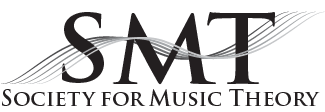Due to changing needs and technologies, the SMT Executive Board has decided to retire SMT Discuss (effective Nov. 9, 2021). Posts will be preserved for archival purposes, but new posts and replies are no longer permitted.
jasonyust
About
- Username
- jasonyust
- Joined
- Visits
- 66
- Last Active
- Roles
- Guest
- First Name
- Jason
- Last Name
- Yust
Comments
-
It seems like a bit of an overstatement to say that McWhorter criticizes Ewell. He uses Ewell's claim about Beethoven as an example and his only conclusion about it is "these ideas are all worth discussing." I think McWhorter has good ideas to add t…
-
Take a look at the next issue of the Journal of Mathematics and Music, which is a special issue with a lot of papers on pattern finding in music, coming out soon. A number of the papers are already published online.
-
You say that your second topic is small but there is a pretty substantial empirical literature on this question that might be relevant to you. Look at, e.g., Patrik Juslin's articles on the topic and his survey chapters in the Oxford Handbook of Mus…
-
Warning to readers: this paper is posted in a repository and does not represent peer reviewed work. That doesn't mean it is right or wrong, just that no music theorists, neuroscientists, or cognitive scientists have reviewed this work yet.
-
Nathan: This is very interesting. On one hand, there seems to be something perceptive in how Fétis distinguishes the older tonalities from the modern (something perhaps lost in Riemann's reformulation). On the other hand, the idea that at the histor…
-
How about: a purely ideological construct introduced by Hugo Riemann in the late nineteenth century, and which has subsequently enjoyed a curious ascendency. (And yes, I'm aware that the term was popularized earlier by François-Joseph Fétis; he mea…
-
I should also point out that the SMT Committee on Race and Ethnicity has put up some resources recently: http://diversity.societymusictheory.org/pedagogy/ Most of these are directed at teachers and administrators rather than students, and as such I…
-
It seems to me that most definitions given up to now concern tonal "centricity": can one reduce tonality to merely that? Yes, I notice that that is the most consistent thing (some element of centricity). But it is at the same time the case that ever…
-
Carson: It is still unclear to me what you mean by "geodesic" and "asymmetrical": What bothers me intuitively about it however is the symmetrical design - nature does operate symmetrically and I think a more interesting lattice could be geodesic p…
-
To play devil's advocate to Nicholas Meeùs: Tonality, to me, is an oriented (or directional) centricity. Directionality can possibly be accounted for including in the notion of centricity some kind of distinction of stability. There is an assym…
-
I'm totally impressed by the range and thoughtfulness of all of the different responses to this question. I shouldn't be -- this is something almost every theorist gives a lot of thought to -- but still I got a lot of perspectives I had not though…
-
It seems to me that most definitions given up to now concern tonal "centricity": can one reduce tonality to merely that? I doubt it, at least in the very general sense of "referential pitch." But if centricity is meant to refer to something more spe…
-
I'm totally impressed by the range and thoughtfulness of all of the different responses to this question. I shouldn't be -- this is something almost every theorist gives a lot of thought to -- but still I got a lot of perspectives I had not thought …
-
Carson, Hi, good questions. (1) Do you mean, does it predict certain progressions over others? If that is the question, I think no. There might be some sense that using the Tonnetz implies that smaller moves should predominate over larger ones, bu…
-
OpenMusic? http://repmus.ircam.fr/openmusic/home It is mostly used by composers but has a lot of theory applications also. The developer is IRCAM, for mac, windows, linux. I don't know if it has pedagogical applications per se, but you don't say the…
-
In response to Nicolas: It is very interesting to see the variety of perspectives. Ultimately, you come to exactly the same point that I think is the bedrock for me: the students should understand the meaning of what they are writing. The other hard…
-
Wow: lots of interesting comments and I'm interested to see they are all some form of support for the idea, and no one yet to come out and say "I'm horrified by this" or something to that effect. (And it is especially interesting that most comments …
-
It might help to know what the focus and/or intended application is: transformational networks applied to atonal music, transformational theory as it applies to tonal music (triadic transformations/neo-Riemannian), or more abstractly how Lewin uses …
-
Rick, Thanks for posting this: It's an excellent question, one I have also been thinking about for a while. I have been teaching rhythmic theory in 20th-century music courses for the past seven years or so, and, besides specialized seminars (music p…
-
The lazy way to satisfy this requirement is to apply chorale writing on the Bach model to it. If you want to do something more interesting, Peter's suggestion, writing a minuet, is an excellent easy and fun composition assignment. Perhaps this mto a…
SMT Discuss Manager: smtdiscuss@societymusictheory.org
